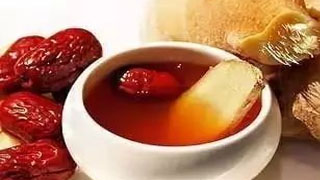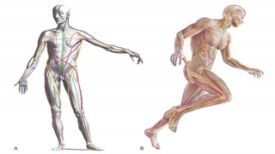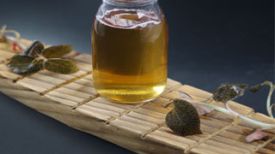
Taking a few steps, panting heavily, feeling cold hands and feet when the weather gets colder, and feeling listless from morning till night... Many contemporary people have entered a state of "physical weakness".
In the view of traditional Chinese medicine, the pace of people's lives is very fast nowadays, and most people's bodies are in a state of fatigue. Over time, it may trigger diseases, and by looking at the "hands", it can assist in determining whether you are truly deficient.
You can tell if you're weak or not just by looking at your hands
01 Frequent numbness in hands may be due to blood deficiency
Keeping a posture still, such as pressing your arm while sleeping, can cause numbness. Poor blood circulation leads to the inability of blood to reach the corresponding area, resulting in numbness. At this point, as long as the limbs are moved, the numbness will improve or disappear.
Without the influence of special circumstances, people who still have frequent and persistent limb numbness in their hands, except for diabetes, transient cerebral ischemia, cervical spondylosis, lumbar spondylosis, etc., Chinese medicine believes that it may be related to blood deficiency.
Blood belongs to the camp (the refined substances produced by diet), and there is insufficient Qi and blood transformation. The blood is not sufficient to nourish the muscles and veins, resulting in symptoms of numbness in the limbs. People with a blood deficiency constitution often have symptoms such as pale lip color, pale or pale complexion, dizziness, blurred vision, palpitations, insomnia, and frequent dreams and forgetfulness.
02 People with weak hands may have qi deficiency
Yuanqi is the most fundamental and important qi in the human body, serving as the driving force behind human life activities. The typical characteristic of Qi deficiency is fatigue and weakness, manifested in the hands as insufficient hand strength, weak lifting, and often feeling sore and swollen.
People with Qi deficiency may also have pale complexion, shortness of breath, fatigue, self sweating, susceptibility to colds, poor immunity, and slow recovery after illness. Observing the tongue image, if the tongue body is plump, the tongue color is light, and there are tooth marks around the tongue body, it can be basically determined as a constitution of qi deficiency.
How to 'fill' different types of voids
In life, some people feel a little uncomfortable and always want to take some supplements or adjustments. Traditional Chinese medicine often says' deficiency is not replenished ', which actually means that' supplementing deficiency 'should not be done randomly, but should be targeted.' Random supplementation 'includes supplementing in the wrong way and method.
Blood deficiency
Traditional Chinese medicine believes that the spleen is the source of qi, blood, and biochemistry. Daily consumption of medicinal and edible foods such as red dates, yams, hawthorns, and longan can strengthen the spleen and nourish the blood.
At the same time, choose nutritious foods rich in iron, folate, and vitamin B12 in your diet, such as pork liver, spinach, carrots, shrimp, etc.
Supplementing Qi Deficiency
To treat Qi deficiency, there is a famous traditional Chinese medicine formula called "Bu Zhong Yi Qi Tang". The herb Huangqi in the formula is known as the "holy herb for tonifying Qi", and is even praised as the "best among all Qi tonifying medicines" in the book "Bencao Zhen Xue".
People with Qi deficiency constitution can usually drink 10-20 grams of Huangqi boiled in water or soup. At the same time, people with Qi deficiency should also strengthen their exercise in daily life, such as brisk walking, Eight Section Brocade, and Tai Chi, which are all good choices.
Nourishing Qi and Blood Therapy Formula
Introducing three "blood replenishing soups" suitable for daily consumption, using dietary therapy to replenish qi and blood, and nourish the five organs.
Wuhong Soup
【 Ingredients 】 10 red dates, 1 brown sugar, 30g red beans, 30g red coated peanuts, and 10g goji berries.
[Practice] Red beans and peanuts need to be soaked in advance, and then put red beans, red dates and peanuts into the pot, add water to boil until soft and rotten, and then put medlar and brown sugar into the pot before mixing evenly.
Wuhong Tang can nourish qi and blood, and is suitable for those with low menstrual flow and light color.
Danggui Red Date Egg Drink
【 Ingredients 】 10 grams of Angelica sinensis, 20 grams of red dates, 1 egg, and 20 grams of brown sugar.
[Method] Put all the ingredients into a pot and cook for 15-20 minutes. After removing the shell from the boiled egg, put it back in the pot and continue cooking for another 10 minutes. Drink the soup and food residue. Except for Angelica sinensis, which cannot be eaten, all other ingredients are edible.
Can nourish blood and regulate menstruation. Suitable for those with blood deficiency and menstrual disorders, especially suitable for taking after menstruation is clean; Pregnant women should avoid taking it.
Longan, Red Dates, and Qizi Tea
【 Ingredients 】 10 grams of longan meat, 20 grams of red dates, 10 grams of goji berries, and 10 grams of brown sugar (those who do not like sweetness can remove brown sugar).
【 Method 】 Brew tea and drink it.
It can nourish qi and blood, improve sperm and vision. Suitable for menstrual insufficiency caused by qi and blood deficiency; Those with yin deficiency and excessive fire should avoid taking it.


